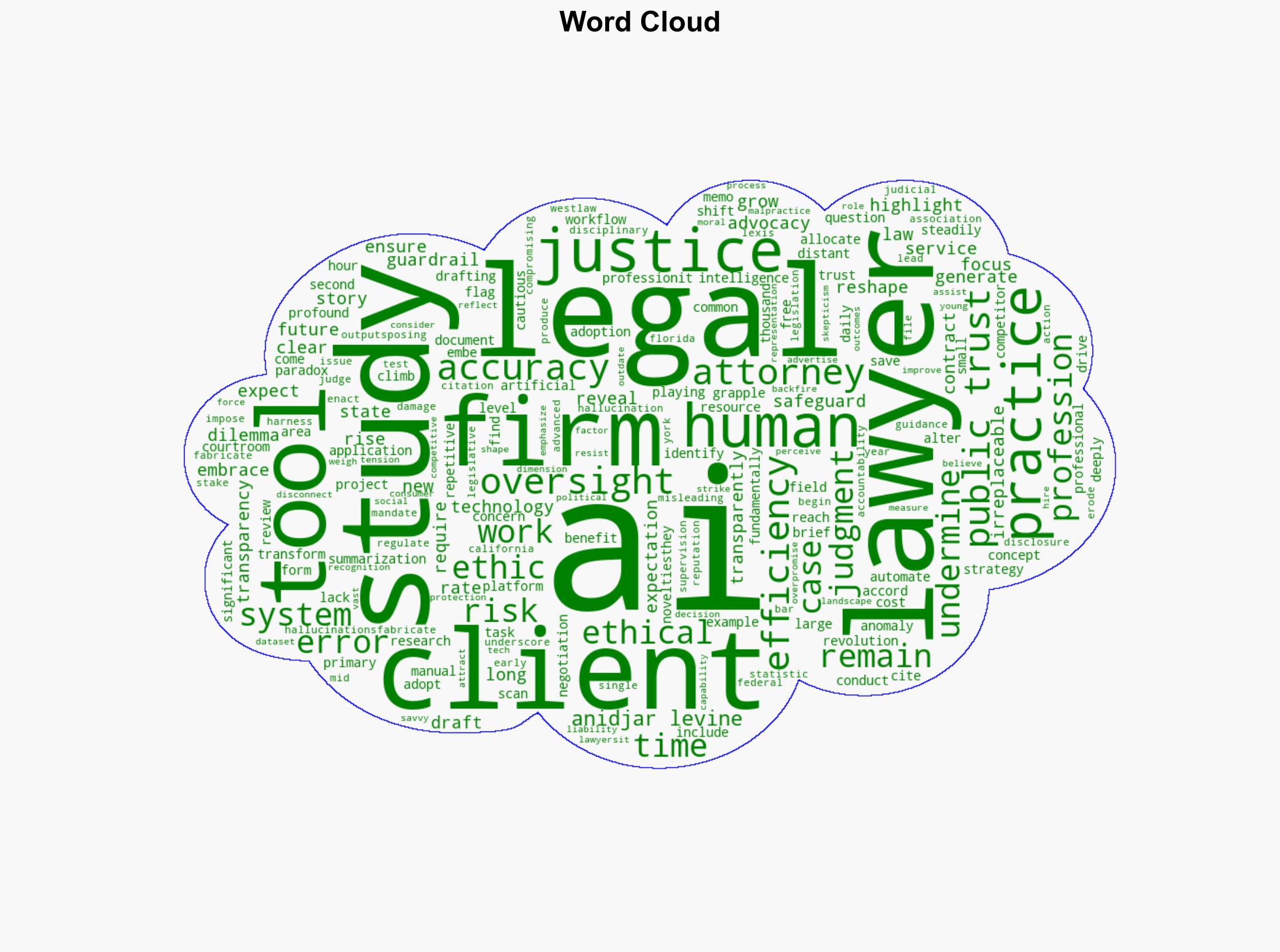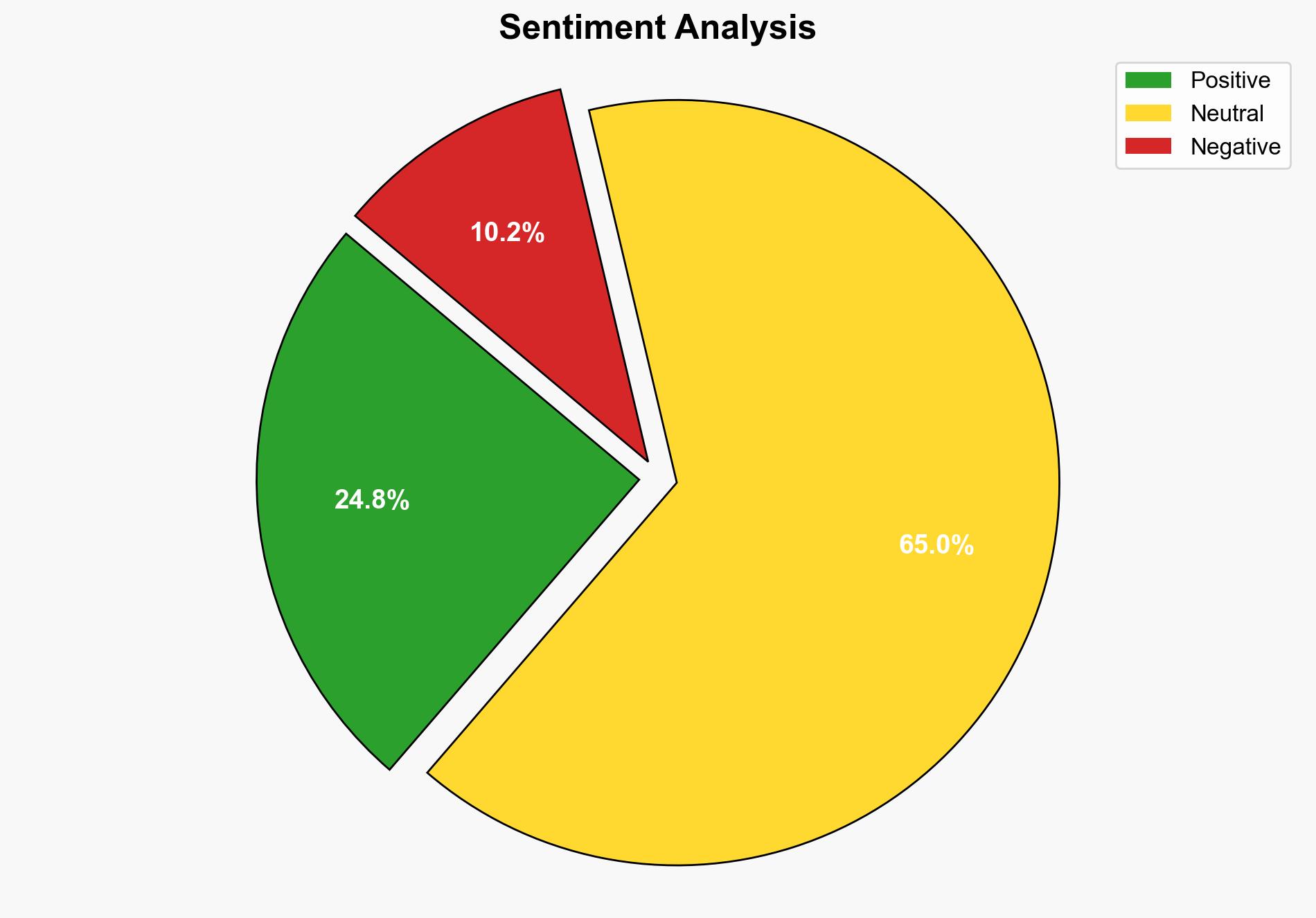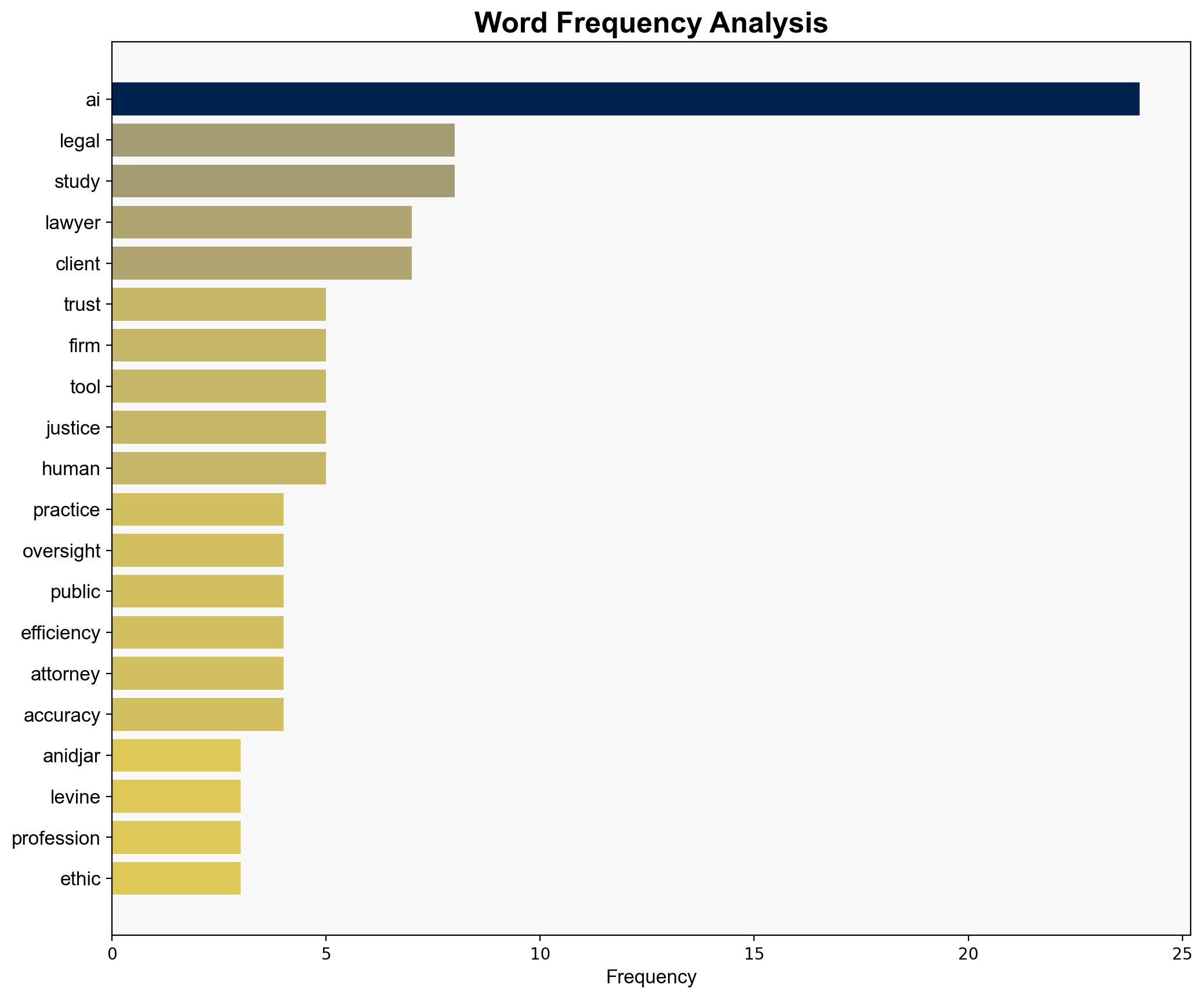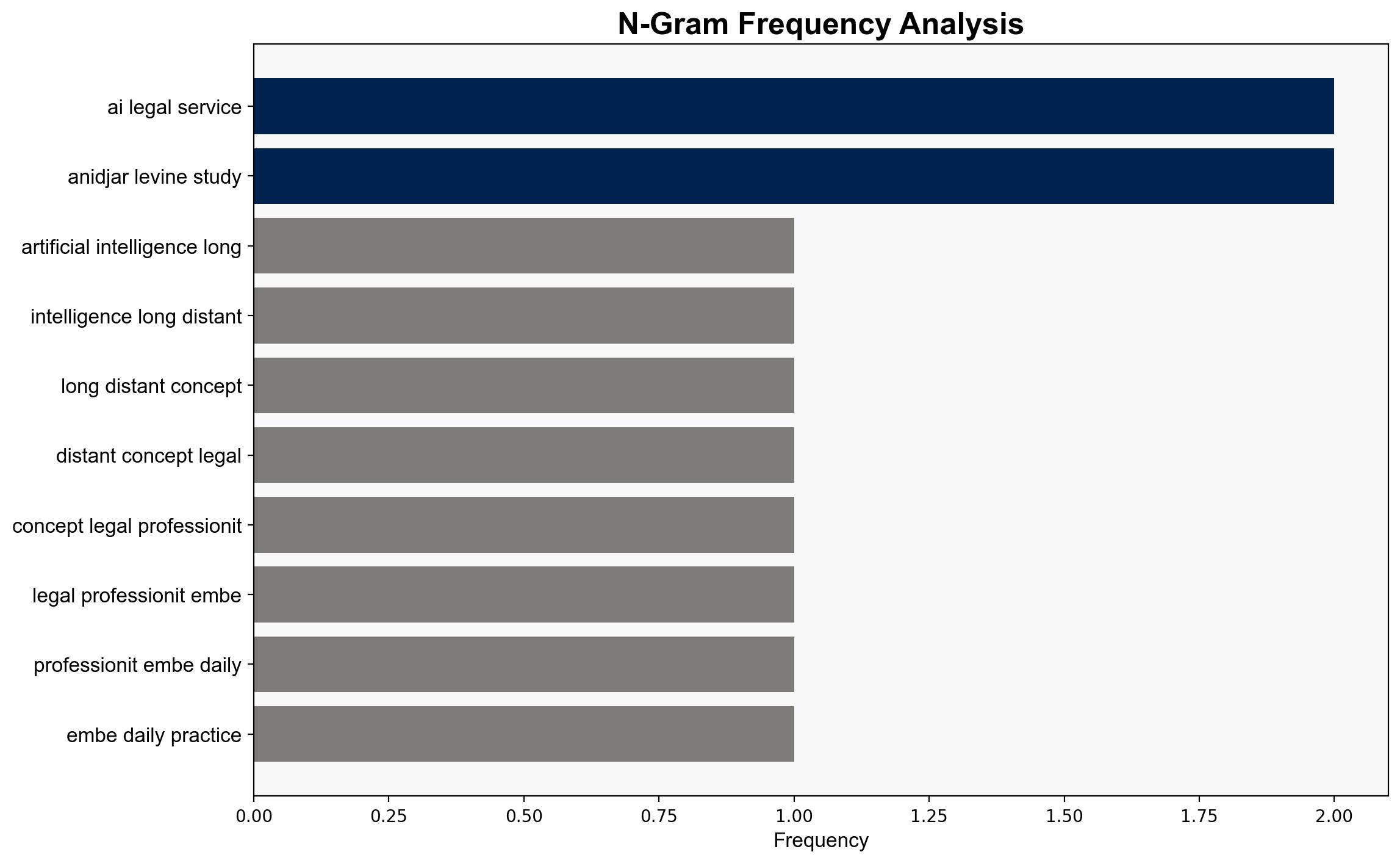From Efficiency to Ethics The Legal Industrys Reckoning with AI – Socialmediaexplorer.com
Published on: 2025-09-30
Intelligence Report: From Efficiency to Ethics The Legal Industry’s Reckoning with AI – Socialmediaexplorer.com
1. BLUF (Bottom Line Up Front)
The legal industry’s integration of AI is at a critical juncture, balancing efficiency gains against ethical and accuracy concerns. The hypothesis that AI will become a core component of legal practice, with appropriate safeguards, is better supported. Confidence level: Moderate. Recommended action: Develop comprehensive regulatory frameworks and ethical guidelines to manage AI integration in legal services.
2. Competing Hypotheses
Hypothesis 1: AI will be fully integrated into legal practices, fundamentally altering workflows and improving efficiency, with ethical and accuracy concerns managed through robust safeguards and oversight.
Hypothesis 2: AI integration will face significant resistance due to ethical concerns, accuracy issues, and potential legal liabilities, limiting its adoption and impact on the legal profession.
3. Key Assumptions and Red Flags
Assumptions:
– AI technology will continue to advance, reducing error rates and improving reliability.
– Legal professionals will adapt to AI tools and incorporate them into their practices.
– Regulatory bodies will establish effective oversight mechanisms.
Red Flags:
– Reports of AI-generated errors (“hallucinations”) could undermine trust.
– Lack of comprehensive legislation addressing AI use in legal services.
– Discrepancy between client expectations and lawyer skepticism regarding AI capabilities.
4. Implications and Strategic Risks
The integration of AI in legal services could lead to increased efficiency and competitiveness, especially for smaller firms. However, failure to address ethical and accuracy issues could result in legal liabilities, reputational damage, and erosion of public trust in the justice system. The competitive landscape may shift, with firms that effectively integrate AI gaining a strategic advantage.
5. Recommendations and Outlook
- Develop and implement comprehensive ethical guidelines and regulatory frameworks for AI use in legal services.
- Encourage continuous testing and validation of AI tools to ensure accuracy and reliability.
- Promote transparency in AI-assisted legal processes to maintain public trust.
- Scenario-based projections:
- Best Case: AI integration leads to increased efficiency and access to legal services, with minimal ethical issues.
- Worst Case: AI errors result in significant legal liabilities and loss of public trust.
- Most Likely: Gradual integration of AI with ongoing adjustments to ethical and regulatory frameworks.
6. Key Individuals and Entities
Anidjar & Levine, legal scholars, state bar associations (California, New York, Florida), federal judges.
7. Thematic Tags
legal technology, AI ethics, regulatory frameworks, public trust, legal industry transformation





